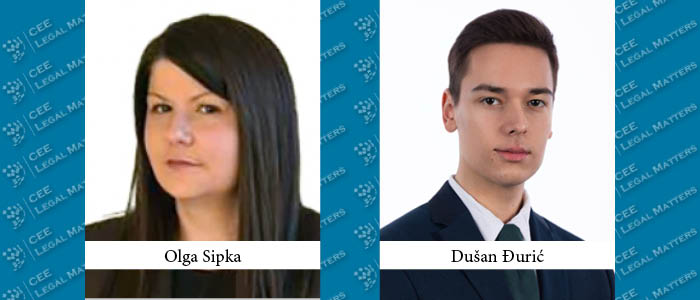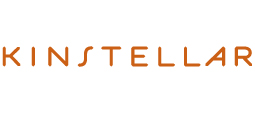In Serbia, most of the exclusivity arrangements between pharma companies need to be, prior to their implementation, individually exempt by the Serbian Competition Authority (“SCA”). Most recently, the SCA issued two decisions in the individual exemption process. In one it denied, while, in the other it only conditionally approved individual exemptions for exclusive distribution agreements between pharmaceutical companies. These developments show a noticeable shift in the SCA’s stand towards exclusivity arrangements with the SCA taking a stringent approach, limiting the parties' ability to contract exclusivity arrangements in the sector.
Below we provide an overview of the individual exemption application requirement, the key aspects of SCA’s review of exclusive arrangements in the pharma sector and we digest the two most recent decisions of the SCA.
Parties to exclusive relations are not entitled to a self-assessment
Serbian competition law is similar to the EU competition regulations, as it follows the EU competition law concepts and analysis of vertical agreements and restraints, including the exclusivity. When reviewing the individual exemption applications, SCA examines the anti and pro-competitive effects of exclusivity arrangements applying similar criteria as those set out in the EU Vertical Guidelines. Further, vertical restraints can be automatically exempted from the prohibition of restrictive agreements if the parties and the agreement meet the criteria of the Serbian Vertical Block Exemption Regulation.
Nevertheless, unlike in the EU, if the criteria of the Serbian Vertical Block Exemption Regulation are not met, and one of the criteria is that each participant to an agreement has a market share of less than 25%, there is no self-assessment. In such a case, parties are obligated to file an individual exemption application and go through an approval process before the SCA. The SCA reviews the application and decides on whether to exempt the restrictive practice. The SCA may exempt a restrictive agreement for a maximum period of eight years. In this process parties need to demonstrate that the agreement in question: (i) contributes to improving the production or distribution of goods or to promoting technical or economic progress, while (ii) allowing consumers a fair share of the resulting benefit, and (iii) does not impose on the undertakings concerned restrictions which are not indispensable to the attainment of these objectives and (iv) does not afford such undertakings the possibility of eliminating competition in respect of a relevant market or its substantial part.
SCA's strict approach to individual exemption applications in the pharma sector
Most individual exemption applications in the pharma sector relate to parties considering to enter into an exclusive distribution model either for some medicines or for an entire portfolio. The SCA’s process of review of such applications has been quite lengthy and complex, both in terms of procedure and in terms of analysis. The key feature of this process is outlined below.
- Long review process and the SCA’s deep-dive analysis: The individual exemption applications in the pharma sector have been scrutinised in detail. In response to an application, the SCA comes back with detailed requests for further information, it surveys other market participants and conducts an in-depth analysis of potential market effects. This process usually takes more than six months.
- Narrow relevant market definition: The SCA has been inclined to narrow the definition of a relevant market, making it more challenging for parties to demonstrate that their market share does not exceed 25%. SCA is moving away from the relevant product market using the ATC 3 classification, and is adopting a narrow approach looking also the ATC 5 classification. This makes it difficult for the parties to defend an argument of no serious market impact and of the fact that competition is not eliminated in respect to a substantial part of the relevant market.
- Detailed analysis of how exclusivity effects sales via tenders in the pharma industry: In Serbia, in the distribution of medicines, there are two main sales channels: (i) public tenders called mainly by the Serbian Health Insurance Fund (“SHIF”) and (ii) commercial sales outside of public tenders to private sector entities (to pharmacies, other wholesales). SCA particularly scrutinizes the tender sales of the SHIF. It analyses exclusivity effects and whether they hinder the ability of wholesalers to make competing tender offers to SHIF, foreclosing intra-brand competition on SHIF public tenders.
Consequently, parties need to make a good case defending the existence of cumulative conditions necessary for an exemption in order to obtain approval of their exclusivity relationship, and to exempt the agreement.
Below we provide an explanation of this argumentation, with reference to the two most recent cases: (i) the Roche – Phoenix Pharma case and (ii) the Novo Nordisk Pharma – Phoenix Pharma case. In both cases parties were planning to establish exclusivity arrangements.
Case law digest
Case background
In 2018, Roche as manufacturer and Phoenix Pharma as a distributor entered into an exclusive distribution agreement in Serbia. The SCA, on party request approved the agreement for a five-year period. In 2023, the two companies filed a request to extend the term of the agreement for another three years, however this time, SCA denied the request.
In 2023, Novo Nordisk Pharma, as manufacturer and Phoenix Pharma as distributor initially requested individual exemption of the exclusive distribution agreement. However, following the rejection of this request (due to the inability to demonstrate fulfillment of relevant conditions), the applicants modified their request, requesting exemption for a period of three years only of the commercial agreement that governs sales of medicines out of public tenders.
In both cases, the analysis of the SCA revolved around the following arguments.
- Narrow definition of the relevant market
The parties in both cases tried to define the relevant market according to the ATC 3 classification which was also the previous practice of the SCA. However, the SCA defined the relevant product market more narrowly, as per the ATC 5 classification, while keeping the relevant geographical market as the territory of Serbia. In such a narrow markets parties had a large market share, and as a result, block exemption was not possible.
The SCA's reason for defining the market according to the ATC 5 classification was that the ATC 3 products in question have significant differences between each other and are therefore not interchangeable (the active substance, method of administration, or the distributed medicine in question was not the same). Also, SHIF tenders called for procurement of specific medicines, so ATC 5 was relevant for review of effects on particular SHIF tenders. In the Roche – Phoenix Pharma case, the products in question were medicine from L01XC02 and L01XC03 classification groups, while in Novo Nordisk – Phoenix Pharma case, the agreement included many types of medicine on the insulin and antidiabetic market, including the Ozempic, Flexpen, Penfil, and Flextouch.
- Market foreclosure
SCA has upfront analysed the last cumulative condition for exemption which it considered most critical. Namely, it looked at whether the agreements restrict competition on the relevant market or its essential part, and concluded that, in case of sales via tenders the agreements do restrict competition. Following an investigation into the tender process and interviews with competitors, SCA determined that the exclusivity led to Phoenix Pharma being positioned to make a better tender offer compared to other potential bidders/wholesalers particularly in relation to termination rights, issuance of bank guarantees and payment deadlines. This, in effect, led to other wholesalers not being interested to submit offers in public tenders. This was evidence for the SCA that exclusivity eliminated intra-brand competition on public tenders as an essential part of the relevant market. Thus, the SCA concluded that the agreements did not fulfill the fourth condition for an exemption to be granted. This was the key reason why SCA rejected the application for exclusivity in tenders. In the Roche – Phoenix Pharma case, the medicines in question were mostly sold in tenders so the request was rejected in full. In Novo Nordisk – Phoenix Pharma case, SCA directed the parties to revise the request, approving exclusivity arrangement only for sales out of tender.
- Improvements and benefits
The applicants in both cases presented the argument that exclusive distribution would result in lower costs, but according to the SCA, no sufficient evidence was provided to support this claim. In the Roche – Phoenix Pharma case, the applicants stated that testing of the new molecules would be established in Serbian hospitals by Roche, resulting in the promotion of technical progress on the market. However, according to the SCA, applicants failed to demonstrate the connection between this progress with the relevant agreement.
In the Roche – Phoenix Pharma case, the applicants argued reduced price and the existence of the rebates. However, the SCA determined that in this instance, the rebate was designed to stimulate demand, rather than reduce prices. Furthermore, the SCA asserted that such relevant rebates also exist outside of exclusive distribution. Additionally, by examining the prices of the relevant medicines in both cases, the SCA did not identify any improvements or clear benefits for consumers.
Nevertheless, in the Novo Nordisk case some of the benefits and improvements claimed were enough for the SCA to grant an individual exemption for exclusive relations to sales out of tender. In this case the SCA found that security of supply and reduced costs paired with the SCA assessment that competition was not restricted for out of tender sales was enough for the SCA to allow exclusivity arrangement for this channel of sales.
Please note: The content of this article is intended to provide general information on the subject matter. Specialist advice should be sought about your specific circumstances.
By Olga Sipka, Special Counsel, and Dusan Duric, Junior Associate, Kinstellar


